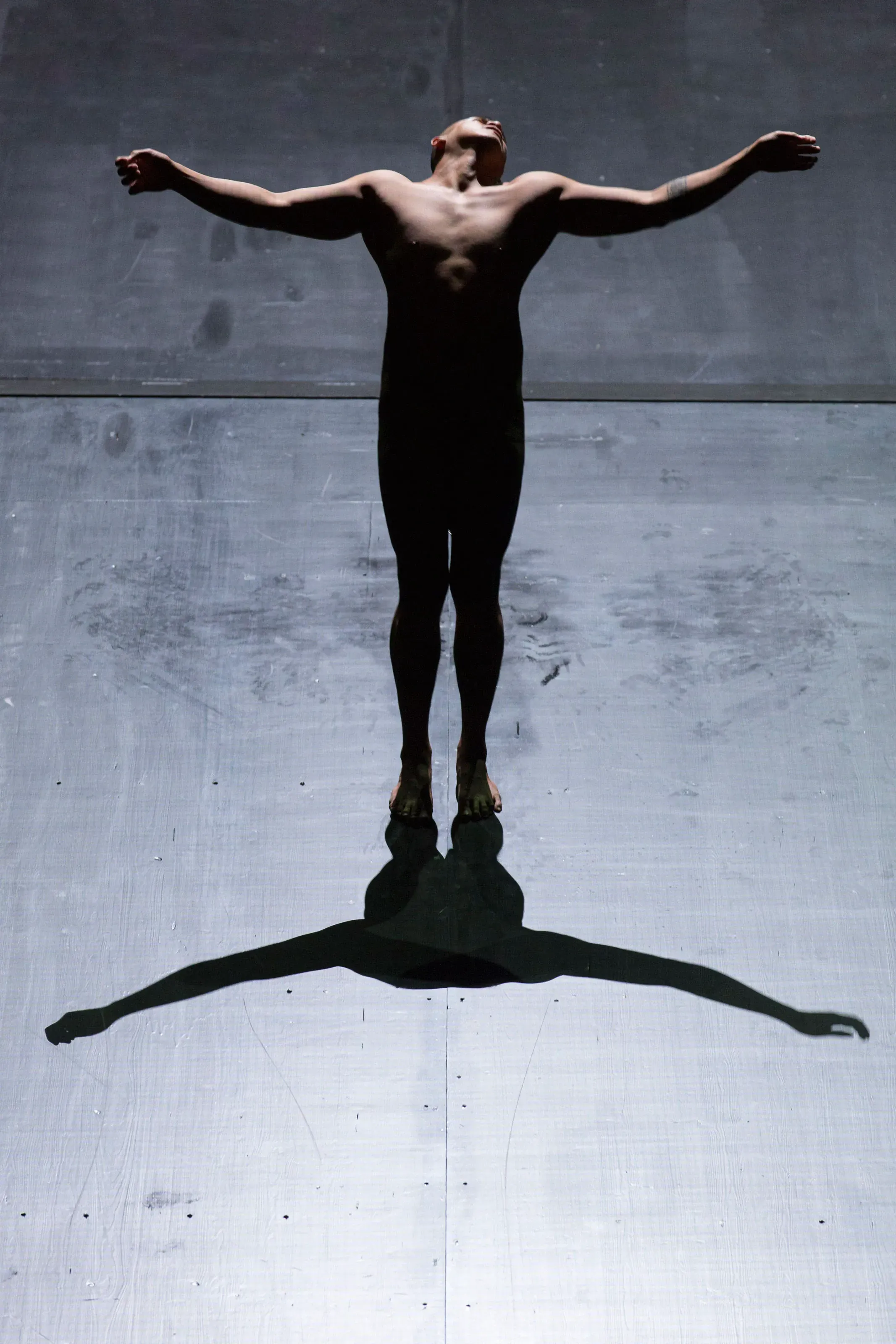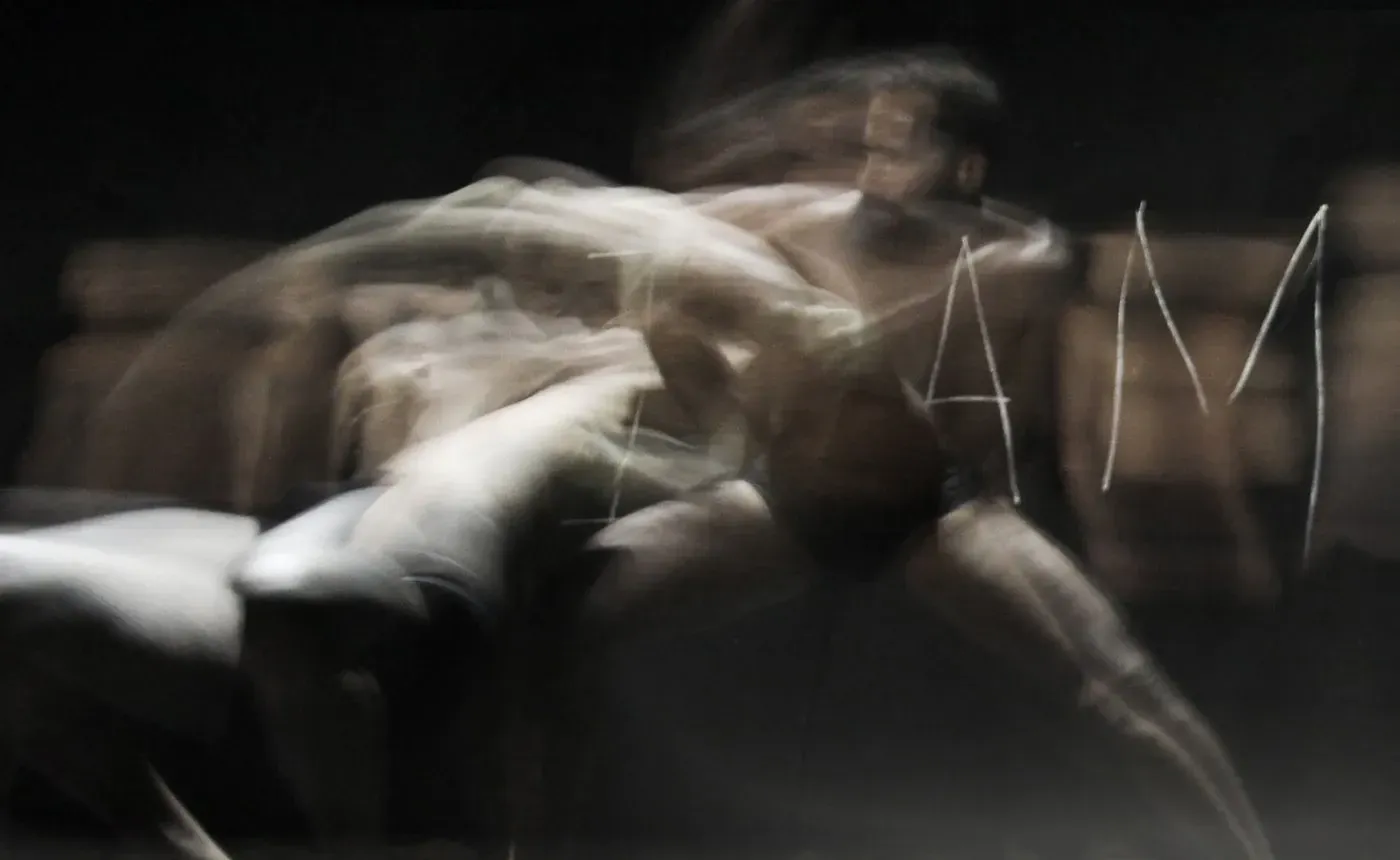Musings with Lemi Ponifasio
Written by

As Dione Joseph wraps-up her coverage of NZ at Edinburgh for The Big Idea, she shares her conversation with MAU choreographer Lemi Ponifasio on art, philosophy and a tapestry of ideas.
As Dione Joseph wraps-up her coverage of NZ at Edinburgh for The Big Idea, she shares her conversation with MAU choreographer Lemi Ponifasio on art, philosophy and a tapestry of ideas.
'He incites us to dissolve the tendency to desire comprehension and instead unfurl the cramped wings of the imagination.'
* * *
When I hurried down Leith walk to meet Lemi Ponifasio I only knew one thing. I was late. White-rabbit-no-time-to-talk-to-Alice late because my last interview had unexpectedly gone overtime. Eventually I arrived, hot and somewhat disorientated as I tried to switch gears from my last conversation to this.
Supposedly we were going to talk about I AM the latest work from MAU which was premiering at the Edinburgh International Arts Festival. As we greeted each other I hurriedly went over the jumble of facts in my head trying to distil information and was vaguely aware that Lemi had cordially invited me to join him over a drink at the bistro next to the Playhouse.
In retrospect we never talked about the work. In fact, we never even talked about MAU. We simply talked about theatre. And people. Because what both Lemi and I have in common is that it’s not just people’s stories that we’re interested in – we’re interested in the people themselves.
And that’s where the conversation started.
“Whether one’s making theatre or making dance it’s so easy to follow the script,” began Lemi, “But really who said so, and how do they know? How do I know you make theatre and how do you know that I do?”
His question merited an answer but my brain had sagged and I mumbled something incoherent and waited.
“We go to theatre to find something much bigger than the frames we are fighting - whether for or against. It’s a totally unknown place but there is a possibility for a beginning.
"The problem with Edinburgh is that it’s like a carnival. Theatre has become something to kill time and we miss the great encounter with ourselves. I see people running around trying to invite people to shows - I never want to invite people to my shows – I just want to tell you what I’m thinking and I don’t change. Ha!”
An excellent piece of advice (and one that would probably save a lot of trees I thought) but before I could respond somewhat adequately, he continued:
“Theatre is a language that is dominated and defined by a whole other kind of empire – we don’t have to show them we are as good as them. So if I come all the way from NZ just to prove that to the people of Edinburgh then that is a waste of a trip, we have to come here and decompose the frames that we carry and the biases we carry – we have become interested in another dimension of human existence.”
'But do we need to care about the audience?' I hesitantly asked, 'Their needs, their voices, their ability to see themselves on stage?' I felt silly asking, yet for the last five years my work has revolved entirely around my community and as my audience it was important to me that their voices that were heard.
Almost as though he knew what I was thinking, he paused for a moment and replied:
“I don’t think about what motivates our audiences or even myself - it’s just a questions about human existence. To create is to be an activist because how I experience the world is not good enough. I have to construct a whole new world and we have ask ourselves what are we constructing? What is it you’re constructing?”
'Well, sometimes I feel I can get siloed into being that kind of director, the young female director who engages with Indigenous issues, and I don’t want it to be about ‘them versus us’, but I now if I’m honest then a lot of anger can get in the way it can become about that.'
My ramble continued for a few minutes and having finished reciting certain instances, experiences and personal examples I took an unnaturally large gulp of whatever it was I was drinking.
He smiled kindly at me before saying: “The struggle whether to be political or artistic is in fact the struggle is to be conscious and the consciousness does not have a judgement - our thoughts have a pain dimension but the consciousness is all embracing and all overflowing.”
“Don’t listen to people who talk about holding up a mirror to society,” he continued before I had time to process, “Let’s shatter the mirror because the mirror that comes back is always constructed by someone else. Our job is to problematise what reality is – whether by the church, the bank, whatever institution you like.”
I know this, have always known this but it’s really good to hear it out loud. I do the obvious which is be quiet and let Lemi expand.
“When we make the theatre we don’t just make it for human beings, we make it for the cosmos. When they took the gods out of the theatre it becomes soap opera so we have to go back but we have to be aware that theatre is an acknowledgement of a cosmic bond, a mysterious bond but in relationship with everything we touch – that’s the dream otherwise we hype ourselves up and make ourselves better than the other.”
By now I’ve lost sense of time but I know I’m not going to make it to my next Fringe show. Ah well.
“In the theatre you want to come and touch somebody and I’m not a hippie so that’s not what I mean but the work, the work must come from this determination otherwise we are just constructing monuments to ourselves and that’s barbaric.
“We have to make theatre whether people love it or hate – and that’s okay. We must make theatre for those who do not love what we make – it’s part of our existence. It’s not about power it’s about us determining how to exist with each other without exercising violence – and we have to work hard. The world is beautiful - it is our culture that we need to reform.”
Seeing my face reflecting a shadow of dawning comprehension, Lemi leans forward in earnest, “We have to find a movement not a marketing exercise - I don’t want to be part of people escaping. We have to go beyond the theatre so as not to serve this language– it’s the critics who took out the gods and made it political.”
We both laugh. In this context, I’m merely a listener. A stage director, writer and I’m quite content but then Lemi asks the inevitable:
“What is your theatre, what is the world you’re kind to construct?”
I know he’s waiting for an answer and I share with him my own thoughts and ideas for a while but eventually pretend it’s a rhetorical question and return to it expectantly:
“It’s important when you go to theatre that you meet the will of the artist,” he says, “Whatever that person is doing or trying to do – do not go to look at theatrical language because nothing new ever happens, occasionally something clever, but not often.”
“Life is very unstable,” he reminds me, “Because you’re either in crisis or going into one and theatre must follow the LIFE not the FORM.”
Seeing my agreement and by now knowing quite a substantial amount about my work and ethics he continues: “The biggest mistake we make as artists is that we want to be loved by everyone and we end up enslaving ourselves into this condition – we need to find our truth and that’s the only beauty that counts – not the standing ovation.”
He sees my face, focus etched into its creases in an attempt to saturate my senses and in this moment he pats my hand saying:
“Don’t try to understand – Imagine. That’s where the power of theatre lies. There are many different languages and symbols and they just create confusion but the theatre is like that: It’s how you engage with the different ways. If there’s no pilgrimage and there’s no light and no God.”
For someone who doesn’t go to the theatre at all (at least that’s what he tells me) Lemi has some amazing insights, not least his notion that we need to go beyond what we understand as theatre and discover “new ways of making theatre, because if we use the old processes we end up in the same place. Your process is your life and you need some courage to make your own voice, your own dance, your own theatre.”
Do I ever.
At this point I’m half submerged in a reverie swirling around Lemi’s words but he rouses me with a gentle admonition:
“You can always invent magic but to find intimacy and trust – that’s difficult. It’s a choice of living,” he explains, “I have an unusual world for myself and people are always trying to project their insecurities or politics. Simply because you have brown skin you must be making pacific theatre. Don’t let them do that to you,” he warns, “If Robert Wilson makes something its avant garde but if you do its exotic - really it’s just a different development in the theatre. Over the years the world is getting used to the fact that I do what I do - and that’s okay.”
After a moment of silence we returned back to a space familiar to us both, the religious space the sacred space, despite all its flaws and inconsistencies, the church. And in context of that space he concludes:
“When making theatre there is a culture of saying that was a ‘good show’ or ‘bad show’ but when you go to church it’s just the mass you are there and you try and touch the divine within you - I wish the audience would just come in this way, be there and hold yourself and imagine your existence and then carry that home with you – after having a cuppa at the school hall.”
My childhood growing up in West Auckland at Christ the King church. True story.
But what he adds next, carries great weight for me: “If we’re going tell stories to create a transformation we need new stories – we need new prophets. I am not a storyteller I don’t see myself in that way but we have to make ourselves present in as powerful a way as possible – when you write in general ad when you write this [i.e. this conversation’] imagine it’s power. You’re serving to create a transformation – not just any story.”
Thanks Lemi, no pressure.
I walked away that afternoon having met a stranger, learnt from an elder and having worried, wept, and wondered about my work – had a strange sense of equilibrium restored that hadn’t been there in a long while.
I still knew nothing about I AM that was to premiere on the weekend but somehow I felt that that was okay. The gods had been brought back into my theatre. Back into my life.
** Please note my responses have been judiciously edited as this was and still is, an interview about Lemi Ponifasio and his artistic practice.

